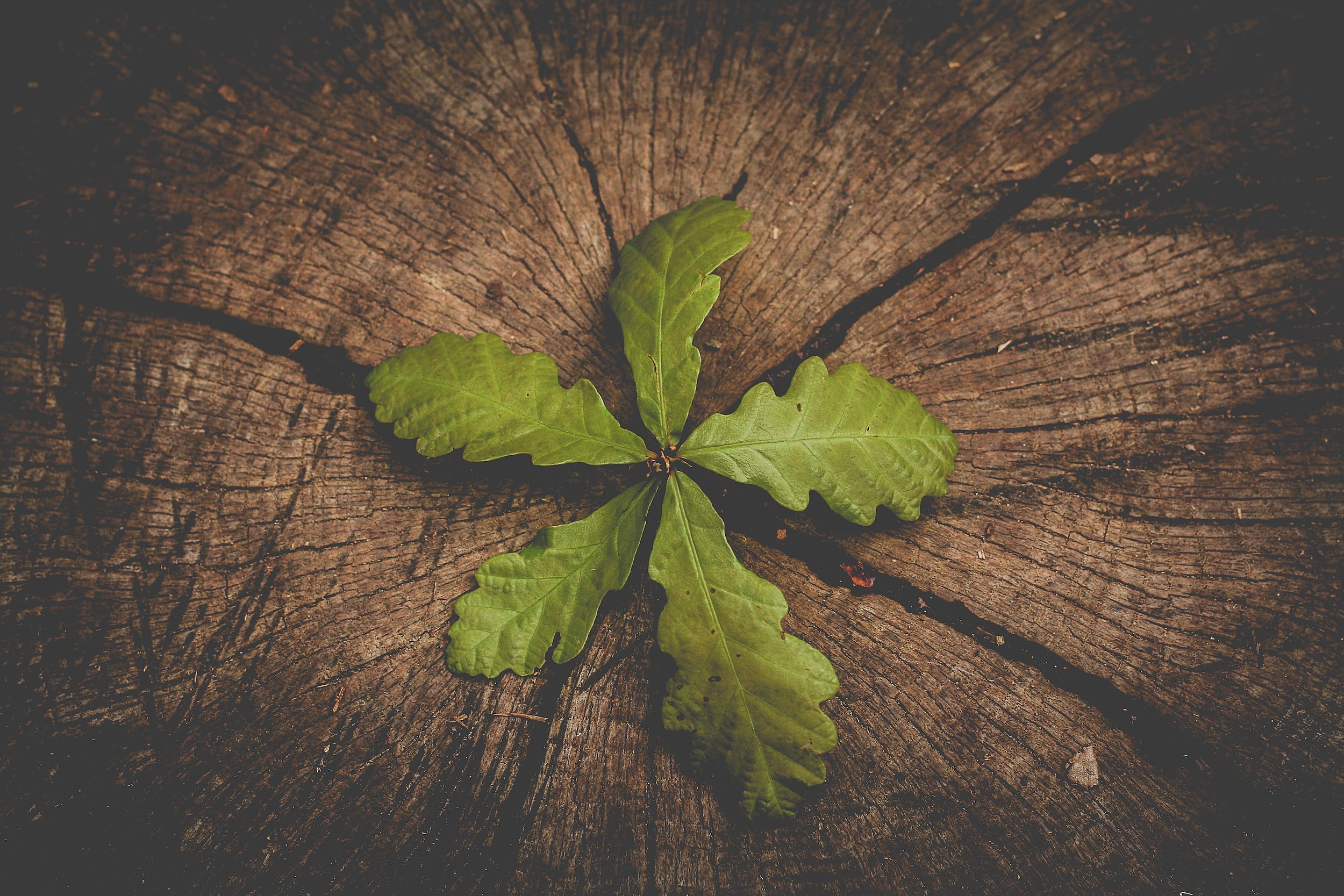
Eco Church
Shouldn’t we just focus on evangelism, not the environment? Shouldn’t we be saving souls rather than saving the planet?
First, Jesus didn’t just care about souls, he cared for whole people in their physical, social and spiritual context. To Jesus people’s relationships with God could not be separated from their relationship with one another and the world around them. He taught that loving God and loving your neighbour are linked. So, healing the sick, releasing the prisoner and stilling storms are all part of the good news. Christian evangelism is at the core of the Christian’s calling and people can only come into a living relationship with God when their sins are forgiven through Christ, but evangelism should not be separated from living out the whole gospel.
Or take for example Noah's ark - God's purpose is in rescuing us from the effect of sin yet it was not only souls but whole people who were saved. In fact, it wasn't only people but every living creature on the earth so perhaps God’s view of what needs saving is somewhat bigger than ours.
Secondly, when evangelism is not only words but is accompanied by showing God’s care for the whole world in practical ways it is more powerful. When Christians have nothing to say about today's big issues including the environment it puts many people off Christianity. When Christians take seriously the challenges of climate change people take the gospel seriously. So, it's not a case of either evangelism or tackling climate change but both the good news of salvation and good news for creation.
Isn't the gospel about spiritual matters not material ones? Doesn't God care about souls not bodies?
Underneath this question is the deeply flawed idea that we can separate the spiritual from the physical. In reality, the Biblical worldview always sees human beings as a mind - body - soul unity that cannot be separated. We are whole people composed of physical, mental, emotional, and spiritual capacities not simply immortal souls encased in physical bodies.
The very fact of creation, that God has made a material universe and declared it very good, and that God continues to uphold sustain and renew the creation shows that physical things matter to God.
The coming of Jesus is God’s stunning affirmation of the material world. Both Jesus’ bodily resurrection and the promise that we too will have physical resurrection bodies (1 Corinthians 15) continues to show how positively God sees material things. It is therefore deeply unbiblical to say that the Christian message is about spiritual rather than material things.
Why should we bother to care for the earth, isn't God going to destroy anyway?
First whatever God has in mind for the future the task of Christians now is to be obedient to God's command given to us in Genesis 1 and 2 to care for the earth. It's our job to look after the earth. The idea that God will destroy the earth is built on very shaky biblical foundations. Whenever the Bible talks about the future of the earth it holds in tension the twin themes of destruction and renewal. Christians have often grabbed at one of these and constructed a theology around it while totally ignoring passages that point in the other direction.
A truly biblical understanding avoids both false extremes - the notion that God is going to destroy the earth completely and the equally wrong idea that everything will slowly improve and evolve towards perfection. Rather a balanced biblical understanding recognises that God's judgement of all that is fallen, evil and sinful will mean a radical cleansing of the whole creation but that God's saving love towards all he has made will eventually lead to the remaking, reshaping and renewal of creation in forming a new heaven and a new earth (Revelation 21).
Didn’t God tell us to fill the earth and subdue it, to have dominion over it? So, aren't the earth and all its creatures just here for our enjoyment and use?
This misunderstanding has often been present in western Christian thinking and has caused untold damage to both the planet and the reputation of the gospel. In fact, the Bible is very clear that it is God’s world not ours, just look at the psalms (Psalm 24.1). The Bible says that this world was created ultimately by and for Jesus (Colossians 1.16). We are permitted to enjoy creation as its tenants and caretakers, but not in a way that is careless, greedy or destructive. We are answerable to the owner: God. The word in Genesis for subdue should be seen as meaning to manage, steward or bring order to. The word dominion is about ruling over in a way that reflects God's gentle and just rule in the same way that Jesus shows us servant kingship.
Shouldn't we be helping the poor rather than worrying about energy audits, lightbulbs and plastic bags?
It's a false distinction to separate caring for the poor from caring for the planet. God has made a world that is interdependent, where we as humans cannot survive without healthy ecosystems to give us food, water, shelter, clothing, fuel and even the air we breathe.
We have seen again and again that it’s the world's poor who are suffering most from climate change and who are most directly dependent on natural systems. Around the world the rural poor depend directly on their natural resource base. This is where their pharmacy is, where their supermarket is, this in fact is their fuel station, their power company, their water company. What would happen to you if these things were removed from your local neighbourhood?
Statistics show that more people are now displaced and homeless because of environmental catastrophe than by violence or war. This is at the heart of Climate Justice. The rich nations who have caused this crisis are least affected while those who have hardly contributed to global warming pay the price.
But the problems are too big, what difference can I make?
It is easy to feel overwhelmed by the scale of the climate crisis, but we can all play our part in being better at caring for God’s creation:
Be Local! We need to become the change that we want to see where we are. We are called to be good and faithful servants with what God has given to us. So, let’s work together to make our lives, homes, church and community places where small changes made by many individuals will eventually have a great impact. We should be a beacon of hope for all around us.
Be Involved! Climate change has happened because of a series of bad choices made by humanity. If we choose together to take responsibility for our planet we can reverse the effects and restore the balance. This doesn’t take over from following Jesus, it becomes an integral part of it. Our Archbishop, the Pope and the head of the Eastern Orthodox church has all issued a joint message for the protection of creation asking all Christians to commit to respond to the unprecedented threat of climate change.
Be Encouraged! The evidence for the harm we’ve done is now clear. It can no longer be ignored. As a result we are moving away from our dependence on fossil fuels. Our Christian faith has lots to offer in inspiring us and others in finding a path to a more sustainable way of living. At the heart of the problem is a problem of the human heart. It is easier to go on selfishly using up the resources of our world. Many of the fundamental climate problems have been caused by greed and overconsumption. It is only as we recognise that this beautiful world is a gift given into our hands by a loving creator that we will become the change that we need to see. It is God’s vision for us to help to build a world where all will have enough, living in harmony with one another and the planet that we long to make real.
Sustainable Sewing
Help save the planet. The clothing industry has a bigger negative impact than the aviation industry!
Our Sustainable Sewiwng group is part of Eco Church at St Jude’s. Sew a repair or learn to sew and upcycle your clothing. Come to our monthly Monday sessions 10:30am to 12:30pm or 5:30pm to 8pm on the 3rd Monday of the month.
Places must be booked in advance, to make sure there are enough sewing machines and helpers. To book, contact Claire Beadnell on southsea.sustex@gmail.com or via the Church Office.
At St Jude’s we are passionate about being good stewards of God’s awesome creation. To help us in this we have an Eco Church Team (ECT) that meets every couple of months to take on projects and make plans. We have carried out a full energy audit, sought permission for solar panels, planted a wildflower garden, challenged the lifestyles of our congregation and held meetings and musicals to promote an effective response to the climate crisis.
If you would like to get involved at St Jude’s as part of the ECT please contact the office to find out how you can contribute (office@sjs.church).
What is Eco Church?
Eco Church is A Rocha UK’s award scheme for churches in England and Wales who want to demonstrate that the gospel is good news for God’s earth. They support churches to express their care for God’s world in their worship and teaching; in how we look after our buildings and land; and in how we engage with the local community and in global campaigns, and in the personal lifestyles of our congregation.
The actions we take count towards a prestigious Eco Church Award at Bronze, Silver or Gold level. St Jude’s currently holds a Silver award and is working towards our Gold level award.
A Rocha’s vision is for churches of all denominations to care for creation as an integral part of loving their neighbours and following God faithfully.
Wildlife Walks
We love to organise Wildlife Walks to help us all appreciate God’s incredible creation. Following the seasons, we can see all sorts of beauty and creatures around us. Check out our What’s On page to see when the next walk is happening.
FREQUENTLY ASKED QUESTIONS
Solar Panels
After years of hard work, consultation, applications, and fundraising, our solar panels are now on the roof and generating power! Thank you so much to all who have contributed!
Wildflower Garden
We have planted wildflowers in our church garden to bring us beauty and support pollinators.
Find out more
If you want to find out more about how St Jude’s is responding to these challenges, feel free to contact the Eco team, through the church office.










